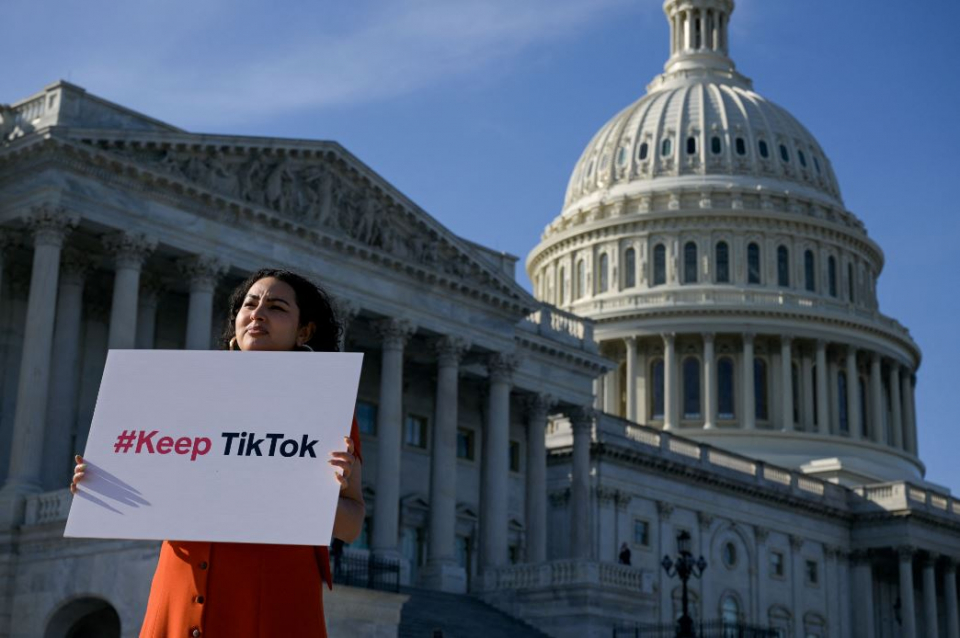The United States House of Representatives has approved a bill that could potentially lead to a nationwide ban on the social media app TikTok unless its Chinese owner, ByteDance, agrees to divest.
The bill, named the Protecting Americans from Foreign Adversary Controlled Applications Act, passed with a decisive vote of 352-65, signaling growing concerns among lawmakers regarding TikTok's ownership structure and its implications for national security.
Lawmakers cite fears that TikTok, with its massive user base of over 150 million Americans, could pose a national security threat due to its ties to the Chinese Communist Party and concerns about potential spying or propaganda activities.
Under the proposed legislation, TikTok would be required to separate from its parent company, ByteDance, or face severe restrictions that could effectively bar it from US app stores.
US President Joe Biden has expressed support for the bill and stated his intention to sign it into law unless ByteDance complies with divestment requirements within six months.
The bill's passage through the House underscores bipartisan efforts to address perceived threats posed by Chinese-owned technology companies. Republican lawmakers have emphasized the importance of protecting American data and preventing potential manipulation by foreign adversaries.
ByteDance has launched a vigorous campaign against the bill, arguing that it infringes upon the First Amendment rights of its users and threatens the livelihoods of small businesses reliant on the platform. However, despite these efforts, the bill has progressed through the House, increasing pressure on the Senate to take action.
The fate of TikTok in the United States hangs in the balance as the bill advances to the Senate, where its prospects remain uncertain amidst ongoing debates and potential amendments.

















